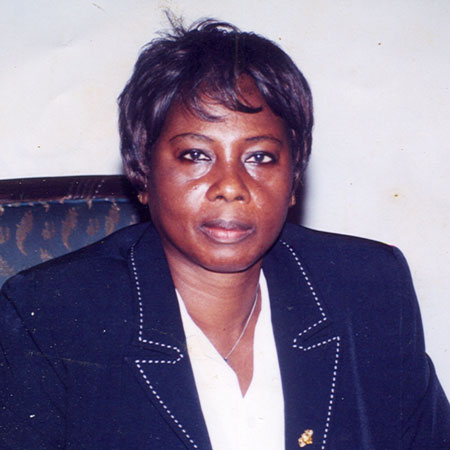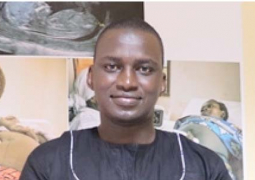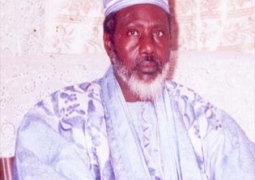
The Africa Regional NGO Shadow Report on Beijing +15 provides a summarized analysis of progress, gaps and challenges in the West, Eastern and Southern sub-regions from the women's NGOs in the Region. It also maps out the progress, gaps and challenges under each of the critical areas of concern, providing country specific examples and some of the significant contributions that have been made by women activists in Africa. In several instances the Report indicates that the numerous policies and action plans developed and/ or reviewed in the last five years, though greatly considered as commendable in building the framework for delivering on the commitments in the Beijing PfA, these have taken huge resources with minimal results to show as evidence of fundamental changes in the daily realities of women’s lives in Africa. Finally, the report gives actionable recommendations to African governments in order to accelerate the implementation of the Beijing Platform for Action over the next 5 years - to move
the commitments to action.
The Beijing + 15 Review in 2009/ 2010 is an opportunity for women in Africa to examine their respective governments' efforts and those of the other non- state actors at implementing the PfA. It is also an opportunity for holding African leaders and governments accountable for commitments made for women's empowerment, gender equality and the promotion of women's human rights under the Beijing Declaration and PfA. Women organizations are also called upon to intensify efforts to ensure that the targets and goals set in the PfA are achieved especially as part of the realization of Millennium Development Goals (MDGs) by 2015.
An International Women's NGO Coordinating Committee was formed at the 2009 Commission on the Status of Women (CSW), consisting of members from each region worldwide. In addition each Region set up a task force. The Regional Women NGO task forces are responsible for ensuring that each country for example in Africa, delivers a document identifying 12 key accomplishments that have been made since Beijing + 10 Review process in 2004, and 12 key areas where critical gaps remain that governments must commit to addressing leading up the 2010 NGO Forum on Beijing + 15.
For more information on the Beijing Platform for Action visit:
http://www.un.org/womenwatch/daw/beijing/platform/
And the FEMNET website www.femnet.or.ke Other related websites regarding the CSW can be reached at most of the UN Websites.
Analysis by Sub-Region West Africa
An analysis of the implementation of the BPFA in 15 countries by WILDAF?WA titled; Women's rights implementation in West Africa: What has been achieved so far?, acknowledges that since 2005, visible progress has been recorded in the area of promoting, protecting and fulfillment of African women’s rights.
The table below shows one area of progress, with 11 of the 15 countries under review having ratified the AU Protocol on the Rights of Women in Africa. However, the report notes that despite the ratification of international and regional human rights instruments, limited measures have been taken at national levels for their incorporation into domestic law and for implementation. Conflicts persist between written law and customary/ traditional and/or religious laws and practices.
Discrimination on the basis of gender and religious fundamentalism are also noted as factors compromising women's enjoyment of full rights and fundamental
freedoms.
In the area of education, the report points out that in the period under review, West African countries have adopted targeted strategies to reach the poorest families and encourage girls' education. For example, Benin, Burkina Faso, Ghana and Togo have established free schooling for pre primary and/or primary school education. Other strategies include waiving the parent teacher association fees for parents of girls entering primary school. Some countries like Togo, Benin and Burkina Faso, have also adopted laws punishing sexual harassment and any other sexual violence on children in school. In some states in Northern Nigeria, mothers are allowed to resume their formal education with their babies. Pregnant girls also have the opportunity to continue their courses and are supported to take the critical level exams to avoid dropping out of school. A law in the State of Kano, Nigeria, punishes girls' withdrawal from the school system for reasons of marriage. In 2008, Mali joined the Convention of UNESCO on Equal Access to Education between girls and boys, and Guinea Bissau established parity in awarding scholarships inside and outside the country.
State of Ratification of Women's rights International and regional Instruments by West African States
COUNTRY CEDAW Optional Protocol to the CEDAW AU Protocol on the Rights of Women in Africa
Benin 12 March 1992 December 2004 13 October 2005
Burkina Faso 28 November 1984 26 July 2005 09 August 2006
Cape Verde 05 December 1980 - 22 July 2005
Côte d’Ivoire 18 December 1995 - Not ratified
The Gambia 16 April 1993 - 06 September 2005
Ghana 1986 2009 20 July 2007
Guinea 17 July 1981 Not ratified Not ratified
Guinea Bissau 1985 February 2008 14 October 2008
Liberia 15 July 2008 - 15 July 2008
Mali 10 September 1985 5 December 2000 03 February 2005
Niger 13 September1999 30 March 2004 Not ratified
Nigeria 1985 September 2000 18 February 2005
Senegal 05 February 1985 10 December 2000 30 January 2005
Sierra Leone 1988 2000 Not ratified
Togo 26 September 1983 Not ratified 26 October 2005





